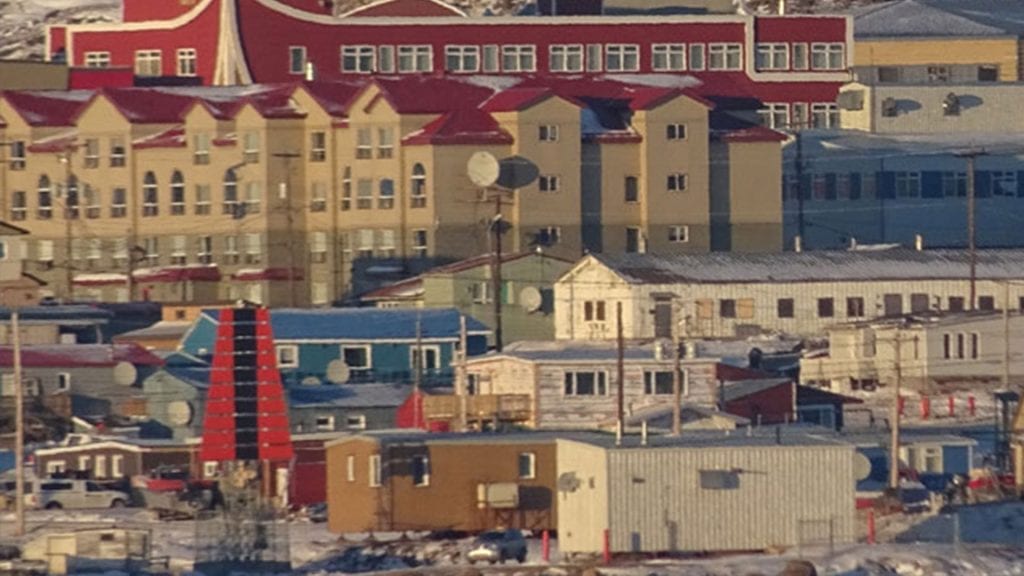
Nunavut's capital Iqaluit is one of the communities that will receive money for shelters. Photo: APTN.
Iqaluit’s city council has declared a local state of emergency over rising numbers of COVID-19 cases.
The capital city of about 8,000 people has 81 of the territory’s 85 active cases.
Iqaluit reported its first case of COVID-19 on April 14, but the territory’s chief public health officer has said the virus is likely to already have been in the city a week before that.
Dr. Michael Patterson says the variant first identified in the United Kingdom is the only strain of the COVID-19 virus circulating in the territory.
Last week, health officials also confirmed COVID-19 cases in Iqaluit’s jails and medical boarding home.
The emergency order comes into effect at midnight tonight, but Iqaluit is already under a strict lockdown that includes school closures and travel restrictions.
The news comes after the Canadian Press obtained a report on a COVID-19 outbreak that took place November.
Broken isolation rules, shared cigarettes and fear of extended isolation periods are some of the findings in a report that sheds light on the outbreak and how Nunavut’s first cases of COVID-19 suddenly appeared.
For eight months, while outbreaks erupted across the country, Nunavut remained free of infection, with the exception of some cases among mine workers from outside the territory.
That was partly because Nunavut has some of the tightest public health measures in the country. In March 2020, the territory restricted travel to residents only and required anyone who left to complete a 14-day isolation period in a hotel outside Nunavut before returning.
But health officials repeatedly warned that it was not a matter of if, but when COVID-19 would show up.
On Nov. 6, 2020, Nunavut reported its first case of the novel coronavirus in Sanikiluaq, a Hudson Bay community of about 850 people.
It soon appeared in other communities, including Arviat, where an outbreak swelled to 339 cases in the community of about 2,800.
Health officials confirmed the first cases came from Nunavummiut who had completed 14 days of isolation down south, but there were no further details.
Nunavut’s Health Department determined the infected people had completed isolation at Winnipeg hotels in October and November. The government ordered a third party to review what had happened.
That report, obtained through a Canadian Press access-to-information request, looks at five guests and one security guard who tested positive.
It says some guests at one Winnipeg hotel didn’t report their symptoms, while some were asymptomatic. One guest had symptoms the day after checking in, but was not tested until eight days later.










